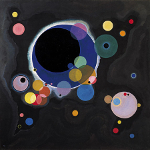As the leading cause of neurological disability in young adults, multiple sclerosis (MS) is a demyelinating disease of the central nervous system. A reliable measure of the tissue myelin content is therefore essential to understand the physiopathology of MS, track progression and assess treatment efficacy. Positron emission tomography (PET) with [11C]PIB has been proposed as a promising biomarker for measuring myelin content changes in-vivo in MS. However, PET imaging is expensive and invasive due to the injection of a radioactive tracer. By contrast, MR imaging is non-invasive, less expensive and widely available, but conventional MRI sequences cannot provide a direct and reliable measure of myelin. We therefore propose a new approach called Sketcher-Refiner generative adversarial networks (GANs) to predict the [11C]PIB PET-derived demyelination from a combination of MRI modalities. Our method consists of two conditional generative adversarial networks (cGANs) named Sketcher and Refiner. The Sketcher aims to sketch anatomy and physiology information, and the Refiner is designed to refine and generate images reflecting the tissue myelin content in the human brain. Our approach is shown to outperform the state-of-the-art methods in terms of image quality and myelin content prediction. Particularly, our prediction results show similar results to the PET-derived gold standard indicating the potential for clinical management of patients with MS.
By speaker > Wei Wen
Prediction of [11C]PIB PET-derived Demyelination in Multiple Sclerosis through Sketcher-Refiner Adversarial Training
1 : Inria Sophia Antipolis - Méditerranée
(CRISAM)
-
Website
Institut National de Recherche en Informatique et en Automatique, University Côte d'Azur
2004 route des Lucioles BP 93 06902 Sophia Antipolis -
France
2 : Institut du Cerveau et de la Moëlle Epinière = Brain and Spine Institute
(ICM)
Institut National de la Santé et de la Recherche Médicale : U1127, CHU Pitié-Salpêtrière [APHP], Sorbonne Université : UM75, Centre National de la Recherche Scientifique : UMR7225
47-83 Boulevard de l\'Hôpital 75651 Paris Cedex 13 -
France
| Online user: 61 | RSS Feed |

|

 PDF version
PDF version